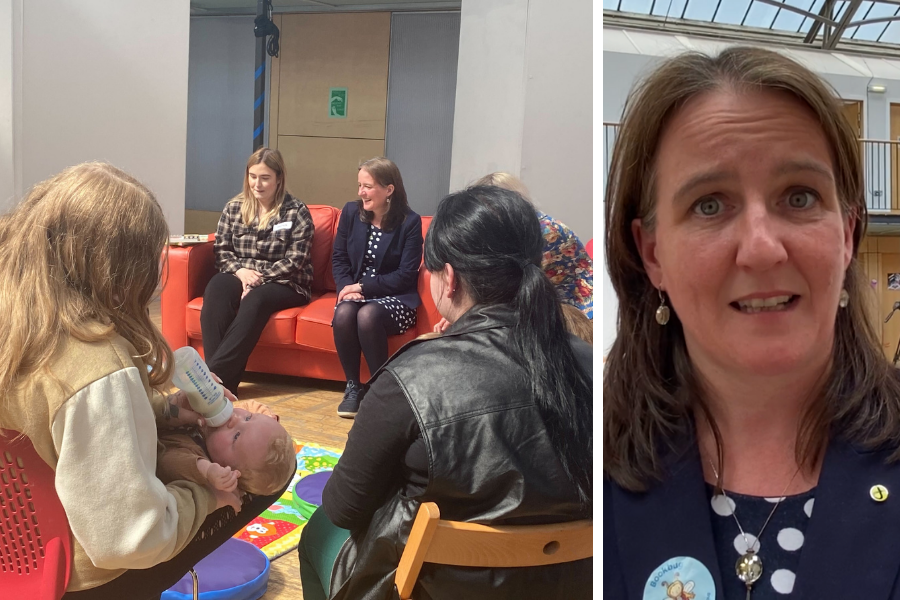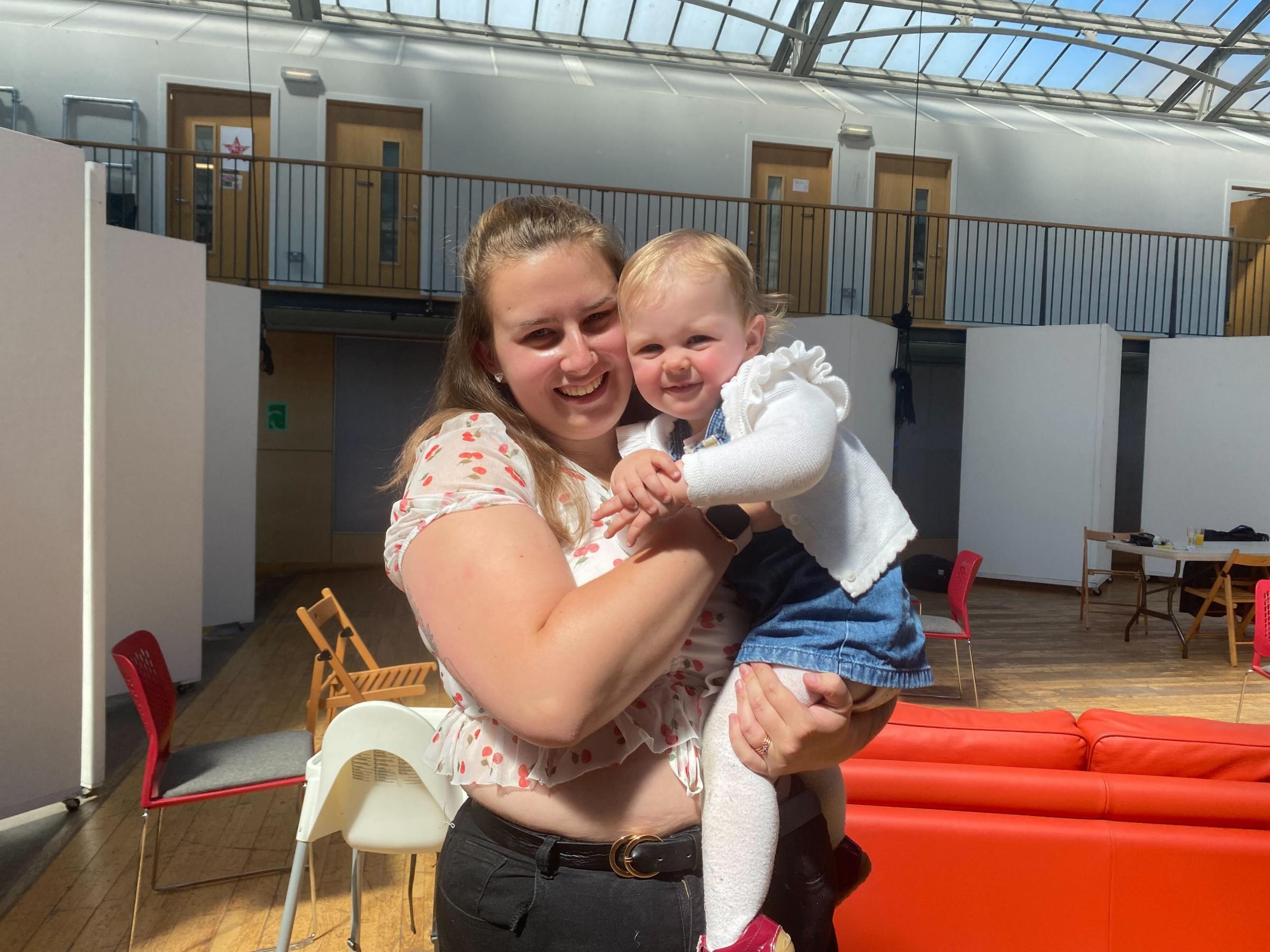
A SCHEME to support young first-time mums has had “tangible benefits” and helped reduce stigma over the past decade, the women’s health minister has said.
The Family Nurse Partnership programme was launched in 2010 with NHS Lothian kicking off the pilot scheme which would later expand out to all of Scotland’s mainland health boards.
Over ten years later, a new report on the scheme has shown that babies are more likely to be born the correct weight, an increase in breastfeeding and that over 10,000 women have now been given support through the programme.
The scheme was initially targeted at people aged 19 and younger having their first children, with health boards who had enough capacity offering places to those aged 25 and under.
Across Scotland, the scheme will offer places to all first time mums under the age of 22 by 2024.
Young mums are linked up with a nurse who can provide support and encouragement throughout their child’s early years, and can also direct them into further education or help with employment if they choose to do so.
The programme is designed to cover the first 1001 days of life, from early pregnancy until the child reaches the age of two-years-old.
Public health minister Maree Todd visited Drill Hall in Edinburgh on Tuesday to celebrate the programme’s milestone and said that more young women are now “reaching their potential” because of the scheme.
Todd told The National: “We always knew [it] would be a helpful thing that’s why we invested in it, but oh my goodness we’re seeing the tangible benefits of this programme being in place for ten years.
“They’re there almost immediately, we’re seeing babies born the right weight, getting vaccinations, we’ve seen an increase in the amount of breastfeeding over the course of ten years, and all of that is really beneficial to the babies.
“We’re also seeing lots of mums fulfiling their potential so more of them in work or higher education than would be without the intervention and that benefits the babies, the mums, the families and their communities.”
Asked if she believes the programme has helped reduce stigma for young mum’s in Scotland, Todd added: “I mean I’d like to think that it has changed, it’s testament to the work that’s gone on and the wonderful relationships that are built that actually eight out of ten people who are offered this intervention take it up and almost all of them graduate so almost of all of them stick with it for the two years which is absolutely phenomenal.
“I think that shows the relationship and with dignity helping people to fulfil their potential, that’s what it’s all about. I’m glad that people aren’t feeling stigmatised or prevented from accessing that support.”
Christina Knott, a care home assistant from Edinburgh, entered the scheme when her daughter Olivia, now 14-months-old, was around 12 weeks old.

Knott said that the support she had made it “easier to deal with the stigma” of being a young single mother.
Asked what the biggest benefit to her was, Knott said: “The amount of confidence I’ve gained. I was terrified of being a young mum.
“I hated the idea of having that label on me, but I’ve recently become a single mum so it’s just trying to get over that fear again of being labelled, not just a young mum but a single mum, especially at 22.”
Knott said that along with her nurse Lorna, the pair frequently set small and long term goals, from taking Olivia swimming to planning a holiday abroad and preparing to take the tot on an airplane.
She added: “It’s insane the differences in my life, I wouldn’t have thought two years ago I would be in this situation.”
Val Alexander, NHS Lothian lead for the partnership service, said that the outcomes of the programme for both the young mum’s involved and the children are “phenomenal”, from encouraging the women back into work or further education, and seeing babies reach and exceed developmental milestones.
She added: “One of the things that’s really interesting is as we’ve been going for so long and people see our clients, they see the successes they’ve achieved 10 years on having been a young teenage mum then it makes the programme less stigmatising because they can see yes actually with the right level of input there’s no reason why these clients can’t achieve the same as everyone else.
“The fact that they had their child young, they needed the support to work with them, so society has changed, it’s not as judgemental as it used to be about teenage mum’s and in the very early days people would report that people would stigmatise them for being a teenage mum.
“Now we don’t see that as often, and I think that’s because they’ve been successful when they then have their children.”







